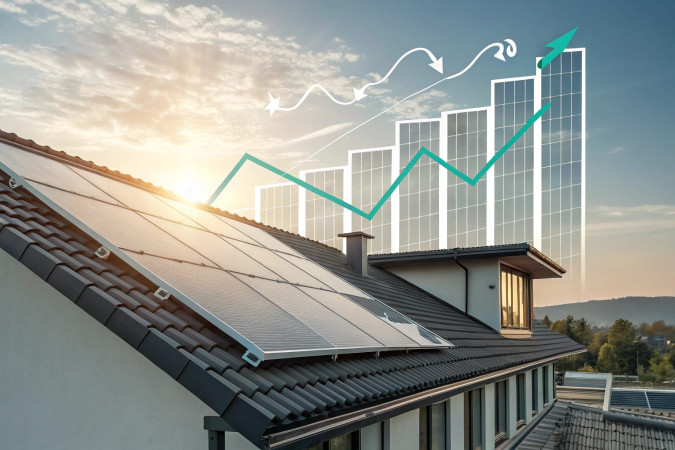
Follow India Renewable Energy News on WhatsApp for exclusive updates on clean energy news and insights
US Tariffs Create Mixed Fortunes for Indian Solar Industry
Apr 05, 2025
Recent US tariff hikes are creating a nuanced impact on the Indian solar sector, offering Indian manufacturers a relative edge over Chinese and Vietnamese counterparts in export markets, while simultaneously raising concerns over the rising cost of imported components.
The US has imposed 26% tariffs on Indian solar exports, compared to 46% on Vietnam and a cumulative 54% on China, slightly improving India's competitiveness in the American market. This could divert some US demand toward Indian exports, especially for solar modules, as China currently dominates with a 65% global share, followed by Vietnam at 21%.
Sambitosh Mohapatra of PwC India notes that although this development could benefit India if it scales exports of exempted energy products, current manufacturing is largely focused on domestic and alternate markets. Additionally, tariffs on machinery and electronics from the US—on which India partially relies for advanced turbines and solar tech—may raise capital costs for Indian renewable projects, especially given tariff gaps of 5.3% (machinery) and 7.2% (electronics).
Ankit Hakhu from Crisil Ratings highlights that the US will remain dependent on imports due to its limited solar cell production. Indian manufacturers stand to gain from the shift away from Chinese and Southeast Asian suppliers, though 20–25% of India's solar production is exported, mostly to the US, and higher tariffs may pressure margins.
Despite India's ambition to grow its renewable manufacturing base, its dependence on China remains high, with over 50% of its solar PV components, such as polysilicon and wafers, sourced from there. Experts warn that China may flood the Indian market with cheaper components if excluded from the US, intensifying domestic price competition.
Leading firms like Waaree Energies, Adani Solar, and Vikram Solar are preparing for these challenges. Waaree’s CEO Amit Paithankar emphasized the importance of a diversified and resilient supply chain, including their Waaree Solar Americas unit, to navigate global uncertainties and sustain long-term growth.
As policy shifts and trade barriers evolve, Indian firms are urged to focus on domestic resilience, export competitiveness, and supply chain agility to remain globally relevant.